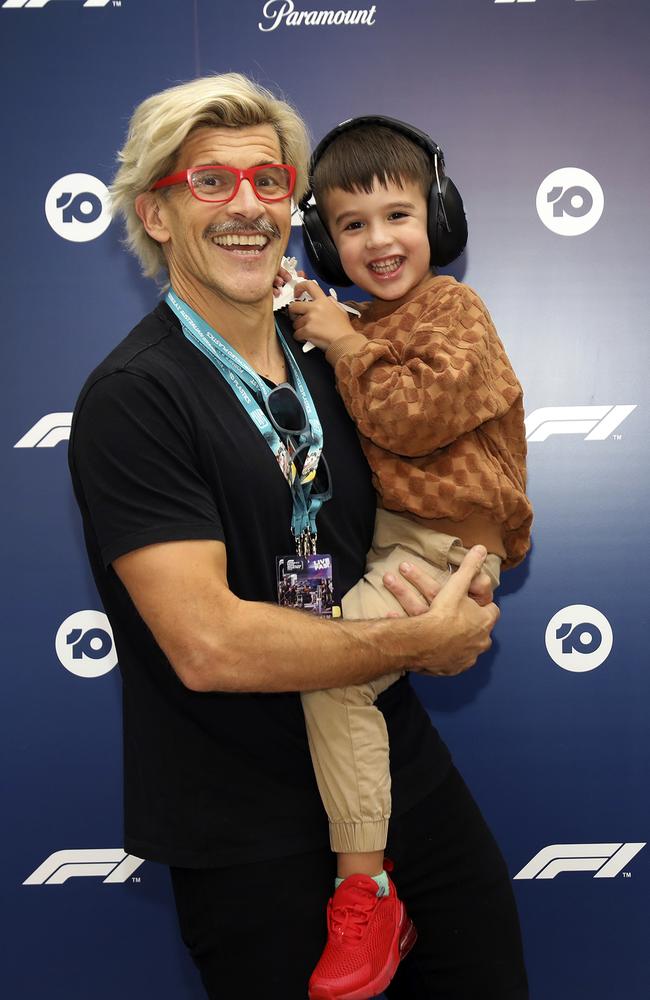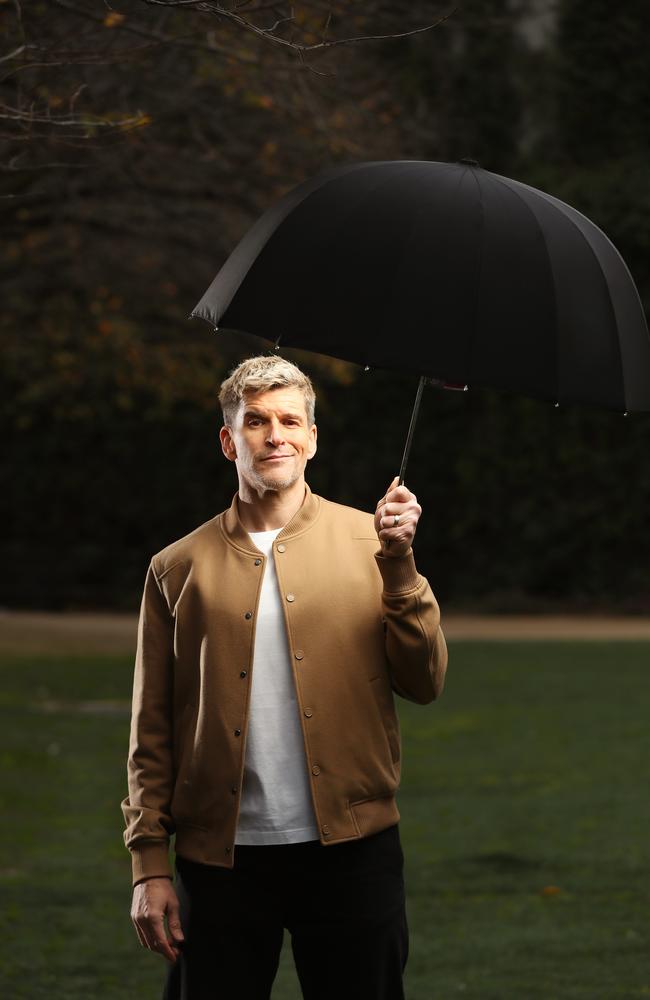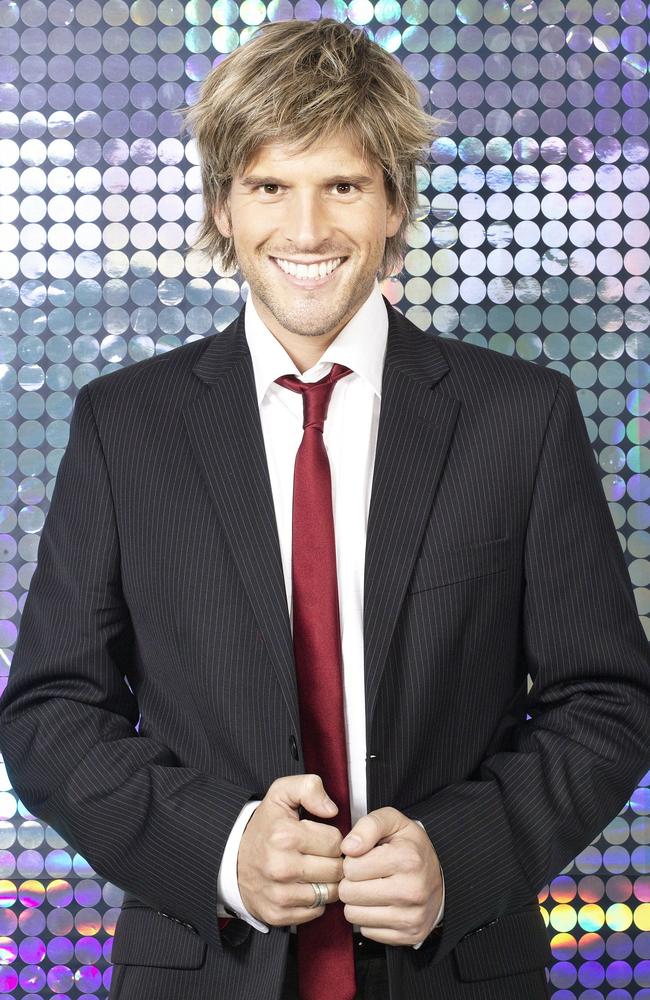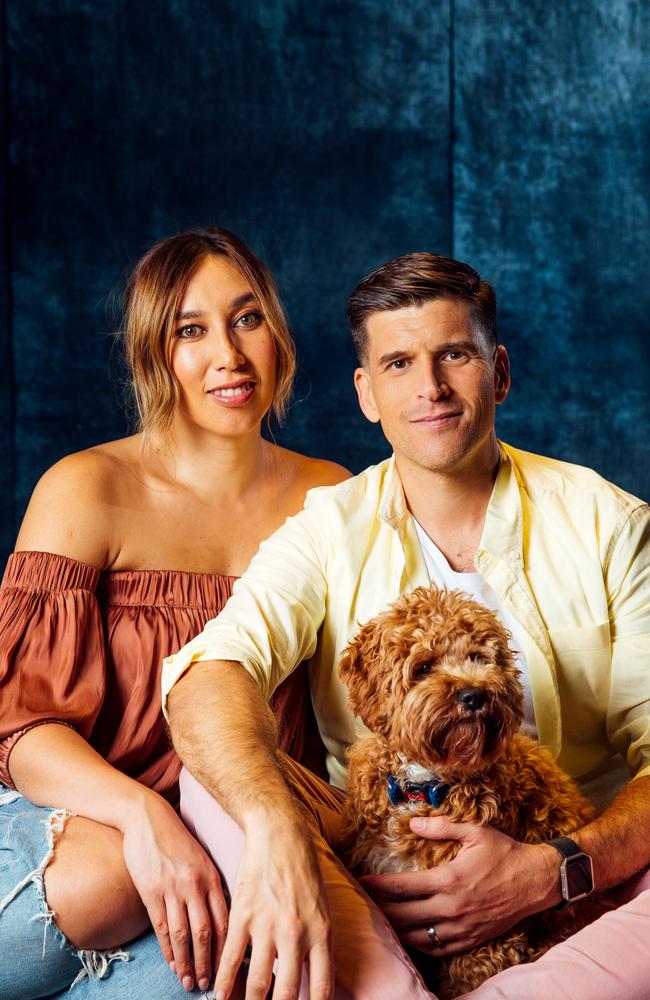‘I was going to die’: Gold Logie nominee Osher Gunsberg reveals how he became sober
While thrilled to be in contention this weekend for his first Gold Logie, TV host Osher Gunsberg knows he’s already scored the best prize: a happy life and sense of contentment after years of mental health struggles.
QWeekend
Don't miss out on the headlines from QWeekend. Followed categories will be added to My News.
The long-haired blond TV presenter burst onto our screens over two decades ago, and we knew him as Andrew G.
Now, after 25 years in television, the charming and charismatic Osher Gunsberg has etched himself into the cultural fabric of the Australian entertainment industry.
The evolution of Gunsberg, 49, has been one of television’s most significant, with his transformation extending to every realm of his life from his career, to his journey to sobriety. But all versions of himself, the good and bad, have led him here, he says – happy, fulfilled and exactly where he’s meant to be.
“I’m just in the car and my son is asleep in the back,” whispers Gunsberg on his phone.
The Sydney-based presenter, in Melbourne with his family to film his 11th season with The Bachelor, is driving with his wife of six years Audrey Griffen and their three-year-old son Wolfgang (or Wolfie) after a family day out at Melbourne Zoo.

He’s on a day off from filming the next season of The Bachelor Australia and as he chats, he switches between Osher the dad, husband and the beloved television personality.
Like his work schedule, his sense of fulfilment and purpose is overflowing. He’s content. It’s a balance he’s worked hard to reach and once never thought possible as he battled with alcoholism, drug use and mental illnesses, and couldn’t get a job on Australian television.
But in Sydney on Sunday, he will be reminded of just how far he’s come.
For the first time, Gunsberg is nominated for the Gold Logie at the TV Week Logie Awards, one of the Australian television industry’s highest honours.

It’s his first nomination in 19 years, with his only other one in 2004, when he was nominated for the Silver Logie for his role co-hosting Australian Idol. He lost to Rove McManus.
So after attending many ceremonies over the intervening years, he could break the drought and win one of the coveted awards.
“The recognition is extraordinary,” says Gunsberg of his Gold nomination.
“It’s just light years from the man that literally could not get a job on television in this country.
“I was unemployed before the first season of The Bachelor and I could not get a job in Australia and I lived my life in a very different way.
“It is, I guess, a sign of what it is I’ve meant for people over their lives.”
And for many, he’s meant comfort, calm and consistency in an ever-changing industry.
Gunsberg has become synonymous with some of Australia’s most iconic shows as the host of the original Australian Idol (from 2003-09); The Bachelor Australia (since 2010) and its spin-offs The Bachelorette and The Bachelor in Paradise; and The Masked Singer.
He is also the narrator of Bondi Rescue.
The online sphere has long been populated with articles revolving around “why hasn’t Osher Gunsberg won a Gold Logie?”.
That’s a question Gunsberg has long asked himself, even posting a meme on his Instagram in 2016 with the caption: “If you only knew the power of the Gold Logie … please vote.”
Seven years later, the post still exists on Gunsberg’s account but he can’t remember it or what he even meant by it – but he does remember the desperation he felt.
“Every year that went by and my name wasn’t nominated, I’d gnash my teeth and be bitter and hold all kinds of resentment; it was awful,” he says.
“I’d go to that show and mumble under my breath, but I’m a very different person now.
“A lot of that comes with sobriety, and a lot comes with trying to look at the way I go through life.
“I’ve gone from someone who was super annoyed at everybody else doing things that I wasn’t doing, to someone who is really happy for
other people, and it’s a much nicer way to live.”
To understand how high Gunsberg has climbed is to appreciate the dark places he came from.
On the surface, the British-born and Brisbane-raised Gunsberg was a rising star.

On radio, he rose through the ranks from the midnight-to-dawn shifts for Brisbane station B105 to host the popular Australian radio chart countdown Take 40 Australia, before a move to the US where he brought a version of the show to Australia from Los Angeles.
But his biggest breaks came on television with his start on Channel V in 1999, where he stayed for seven years, before he rose to fame co-hosting Australian Idol, with many of those years alongside his good friend James Mathison.
He was the bubbly, fun, effortless presenter Australia was falling in love with and, on screen, he was in control but, he says, at home he was anything but.
“When I was in Brisbane, I think I was 22, the first time someone who really cared about me, who was my girlfriend at the time, she looked at me and asked what I was doing to myself … and I’m brushing vomit-soaked hair out of my mouth,” he says of his alcohol addiction.
“I was just having greater amounts trying to distance myself from thinking about or dealing with these uncomfortable thoughts and my solution at that point was drinking or using.”
Mentally, he was in decline and he faced his toughest struggles during the filming of the second season of The Bachelor. He wanted to end his life.
“I was probably 20kg heavier than I am now and I’m getting papped by the papers. People are body shaming me about not being able to fit into my suits,” Gunsberg says.
“That’s the response and changes when you’re on these drugs (medication), you put on weight and even if you’re training, it doesn’t matter. As I was riding my bike across the bridges to work around Sydney at that point, I was dealing with all these really awful intrusive thoughts and thoughts of suicidality and paranoid delusions.”
It was the work, he says, that saved him and led him to Griffen, a make-up artist he met on set that season and who changed his life.

Gunsberg, now 13 years sober, reflects on just how lucky he is to be alive.
“I was going to die,” he says. “I just turned into an idiot. My ability to figure out how much more I should drink goes out the window; my sense of right and wrong just changes and spins like a compass in a bad industry.
“There’s no question if I had kept drinking and using, I wouldn’t be alive right now. No question. I’m really lucky that I get to live the rest of my life not being that guy.”
Gunsberg has long spoken openly of his experiences with anxiety and his diagnosis with obsessive compulsive disorder, post-traumatic stress disorder and psychosis.
He’s since become one of the country’s greatest mental health advocates, diving deeper into his and others’ experiences through his long-running podcast Better Than Yesterday.
Gunsberg is much more than a television host to the nation. He’s proving the power in caring for yourself, others and what it means to have purpose. So, whether he takes home the Gold or not, Gunsberg knows he’s already won.
“Would I love a statue? Yeah, that would be lovely but the man I am now, that’s the prize.”
If you or someone you know needs support please contact Lifeline Australia, 13 11 14.





